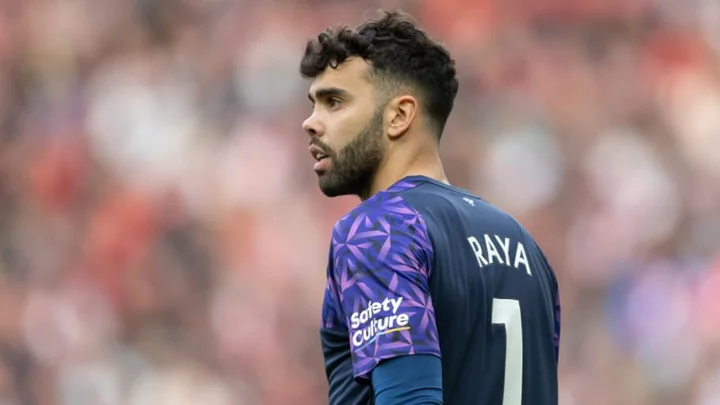Spain produced dominant performances throughout the World Cup as they saw off England to lift the trophy for the first time.
Beaten Lionesses manager Sarina Wiegman said after Sunday’s final that “you have to give credit to Spain, over the tournament they played the best football,” and her words are borne out by the statistics.
Here, the PA news agency looks at how the cup was won.
Spanish style
Spain’s 157 shots at goal were by far the most at the tournament – semi-finalists Australia, with a round 100, were the only other team in three figures.
They also ranked top on a ‘per 90 minutes’ basis with 18.9, narrowly ahead of Brazil’s 18.3, and gave up only 5.2 per 90 at the other end – a figured bettered by only the United States (3.5) and New Zealand (5.0).
They ranked only ninth for accuracy with 36 per cent of their shots on target, and 11th in conversion rate at 11 per cent, but their dominance of games meant that was enough for victory and their 6.7 shots on target per 90 still led the way.
FIFA’s official statistics show them with 169 completed ball progressions, when no other country reached three figures, and 1,008 line-breaks – England were next at a distant 884 while 121.4 per 90 minutes is 15 more than any other team.
They completed more passes, 4,002, than any other country even attempted, with England’s 3,963 attempts second to La Roja’s 4,622 as the Spanish system so familiar in the men’s game was executed to perfection by their women as well.
Spain’s 44 take-ons completed was almost double the next-best tally of 24 by France and Australia – though they were behind group-stage victims Portugal, Italy and Germany on a per-90 basis. Forward Salma Paralluelo alone managed 10.
Show of strength
Spain won every game but one and gave playing time to 22 of their 23 squad members, with only third-choice goalkeeper Enith Salon not used as Cata Coll replaced Misa Rodriguez between the posts after the group stage.
Defender Irene Paredes was the only player to play every minute as they demonstrated the depth of their options, even in the absence of 12 of the 15 players who last year withdrew from selection amid a dispute with the national federation.
Ona Batlle, Mariona Caldentey and player of the tournament Aitana Bonmati were the only members of ‘Las 15’ present in Australia and New Zealand as the likes of young player of the tournament Paralluelo, the previously uncapped Coll and final goalscorer Olga Carmona emerged to play key roles.
England performed creditably in the face of their own absences but may have ultimately been undone by the lack of options available to Wiegman.
From last year’s European Championship-winning squad, captain Leah Williamson, Golden Boot winner Beth Mead and Fran Kirby were ruled out by injuries and Jill Scott and record scorer Ellen White have retired.
Midfield lynchpin Keira Walsh missed a game and a half with a knee injury and emerging star Lauren James served a two-match ban but despite that, Wiegman used only 17 of the 23 players at her disposal and made only 20 substitutions.
Goalkeeper Mary Earps, captain Millie Bright and fellow defender Alex Greenwood played every minute as Lotte Wubben-Moy, Esme Morgan, Jordan Nobbs and Katie Robinson went unused along with back-up keepers Hannah Hampton and Ellie Roebuck. Niamh Charles, Laura Coombs and Bethany England also did not start any games.









